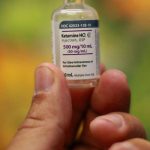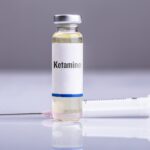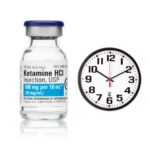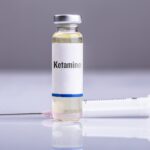Ketamine Breakthrough: A Ray of Hope for Treatment-Resistant Depression

Dr. Dan Iosifescu’s patient had a history of depression, during which they experienced significant improvement for several years. Unfortunately, their condition took a severe turn for the worse, and despite trying various medications, they faced a lack of progress and endured numerous side effects. This situation caused them to withdraw from their normal life routines, grow distant from their family, and even struggle with daily tasks.
However, a turning point occurred when the patient was introduced to ketamine, a drug known as a “dissociative” anesthetic, which has been under investigation for its potential to treat depression, a leading cause of global disability. Within just a few weeks of treatment, a remarkable transformation took place. The patient’s symptoms improved drastically, and they seemed to return to their previous level of functioning and mood, as if by a miracle.
A groundbreaking study conducted in Australia and New Zealand further supports the potential benefits of ketamine in treating severe depression. The research involved 179 individuals with treatment-resistant depression, some of whom had previously undergone electroconvulsive therapy with no success. These participants received either ketamine or a placebo twice a week for a month, with the dosage being adjusted based on their clinical response.
The results were impressive, as 20% of those who received the low-cost generic ketamine achieved total remission from their symptoms, while a third experienced at least a 50% improvement. In contrast, only 2% of the control group achieved total remission. The study is considered the largest of its kind to compare generic ketamine with a placebo for severe depression.
Dr. Colleen Loo, the lead researcher of the study, emphasized the importance of individualized dose adjustment in optimizing the benefits of ketamine. She expressed her belief that ketamine is the most effective treatment for depression in the last 80 years. Additionally, Dr. Iosifescu concurred, highlighting the remarkable speed at which ketamine can bring about positive effects compared to traditional antidepressants.
Despite the promising results, there are challenges associated with ketamine treatment. Not everyone can benefit from it, particularly individuals with psychotic disorders. Moreover, the effects wear off relatively quickly, necessitating ongoing and potentially expensive treatment. In Australia, for instance, the patented S-ketamine nasal spray costs around $800 per dose, and the accompanying medical care costs approximately $300.
In the United States, insurance may not cover the treatment due to ketamine being prescribed “off-label,” resulting in varying costs, typically amounting to several hundred dollars per infusion. Dr. Iosifescu expressed hope for a similar compound that can be administered orally, even if not as effective as ketamine, to sustain the initial positive benefits of the drug. Some companies are actively developing ketamine-like molecules for oral administration, but their efficacy is yet to be proven.
The study was published on July 13 in the British Journal of Psychiatry, highlighting the continued efforts to find innovative and effective treatments for depression to improve the lives of millions worldwide.





